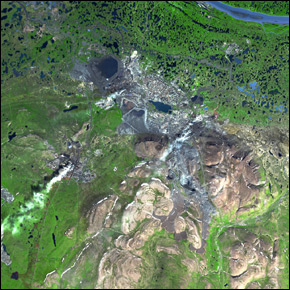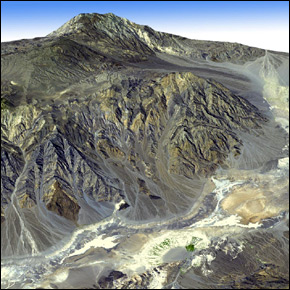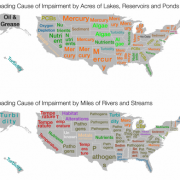Keeping an Eye on Water From Space

Satellites are increasingly being tasked with keeping an eye on the planet’s fresh water supplies, giving scientists and governments new tools to track how water is used, who is using it, and how to better manage the fragile resource. Some of the results are alarming.
A Washington Post article Monday described how a new water mapping program developed by the Idaho Department of Water Resources (IDWR) uses computer analysis of satellite imagery to help measure how water is being used across a region or a single field. A recent NASA study of satellite data from India found that groundwater in fast-developing regions is disappearing faster than it can be replaced.
Idaho’s IDWR program, called “Mapping Evapotranspiration from Satellites,” measures the amount of water that escapes from plant leaves and evaporates from the ground. The information can help pinpoint the amount of water used by irrigated agriculture and other land uses. The data is being used in water planning efforts, to legally defend water rights decisions, and for managing endangered fish habitat. The University of Idaho and IDWR have begun training water managers in other western states on the program.
In India, new satellite data suggests that the booming states of northern India are using water faster than it can be replenished, reducing groundwater levels by a foot a year. A NASA report on the data quote The report quotes Hydrologist Matt Rodell, based at NASA’s Goddard Space Flight Center in Maryland. “If measures are not taken to ensure sustainable groundwater usage, consequences for the 114 million residents of the region may include a collapse of agricultural output and severe shortages of potable water,” Rodell warned. “The region has become dependent on irrigation to maximize agricultural productivity, so we could be looking at more than a water crisis.”
See more phenomenal spaces from NASA.
Sources: Washington Post and NASA










Leave a Reply
Want to join the discussion?Feel free to contribute!